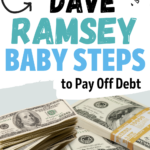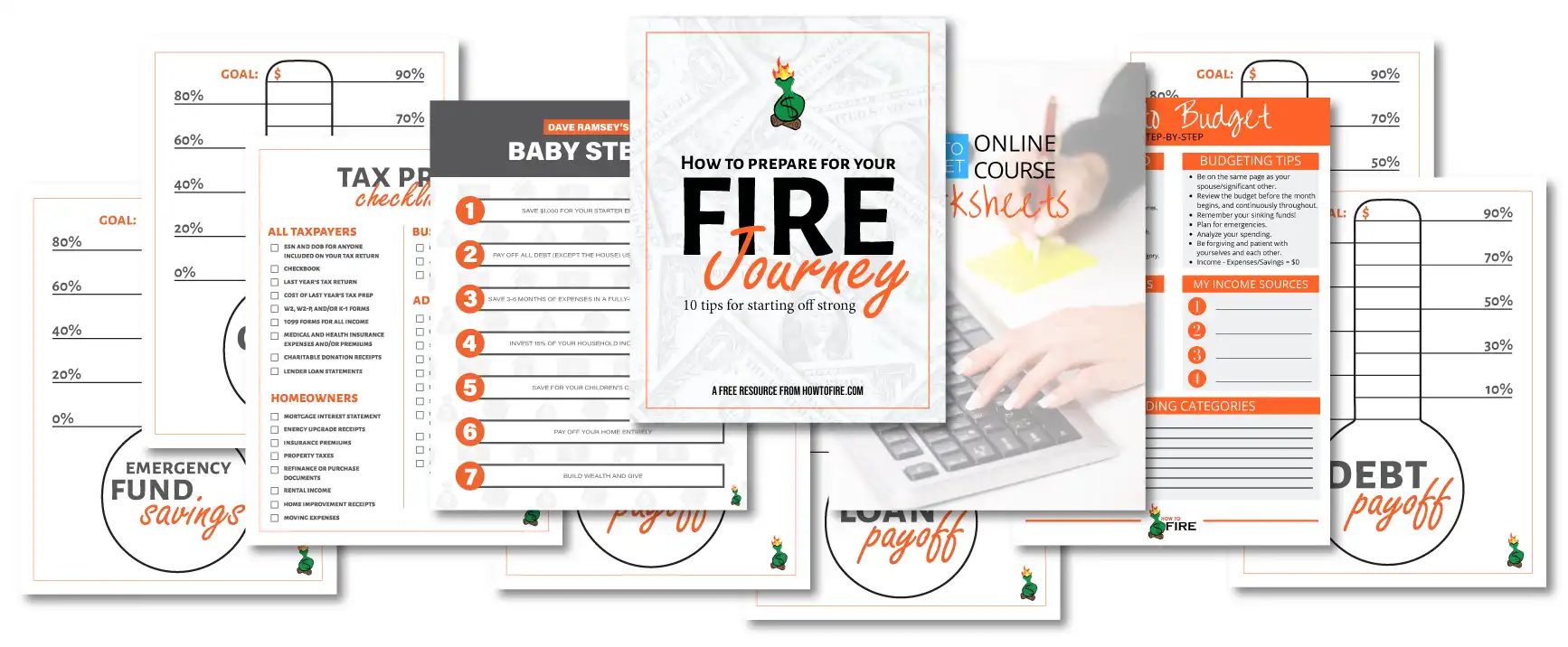If you’ve looked for financial guidance on the internet, you’re bound to have come across the Dave Ramsey Baby Steps. For many, they are the stepping stones used to foster money conversations, gain control of money, and build wealth.
While many people need the structure that the Baby Steps provide at first, as you move along your financial journey, you may find that you would prefer different money management methods. That’s where financial independence and early retirement (FIRE) come in. After finding the community, many Baby Steppers graduate to this alternative method of money and life optimization.
Ultimately the decision of what will work best is up to you. The most important thing is that you are taking action with your finances, whether you choose Dave Ramsey, FIRE, or a hybrid of the two.
Here is everything you need to know about the Dave Ramsey Baby Steps and how to use them as a gateway to the FIRE movement.
Table of Contents
Who is Dave Ramsey?
Dave Ramsey is a personal finance expert, best-selling author, public speaker, TV personality, radio host, and owner of Ramsey Solutions. After pulling him and his family out of a black hole financially at the age of 28, he made it his life’s purpose to counsel the world with no-nonsense advice.
He has helped thousands of people get control of their finances through budgeting, paying off debt, saving, and investing for retirement. In addition to his radio show and books (like The Total Money Makeover), he is also the creator of Financial Peace University and the 7 Baby Steps.
He is one of the world’s most trusted resources for financial information and is well known for encouraging debt freedom. You’ll often hear him quoting the verse from Proverbs 22:7 which states, “The rich rule over the poor, and the borrower is slave to the lender.”
Dave Ramsey Net Worth
To say that Dave Ramsey has come a long way since his personal bankruptcy would be a great understatement. Dave and Sharon Ramsey have an estimated net worth of $55 million.
This may be shocking given that his profession is helping people get out of debt and the like. Some may even go as far as saying that he is exploiting those who need help with their finances to make a profit and raise his net worth. Especially since his methods are so specific, with no allowance for the personal in personal finance.
Dave Ramsey’s net worth doesn’t lie, though, because his teachings have spread like wildfire around the world.
What are the Dave Ramsey Baby Steps?
Dave Ramsey’s Baby Steps are a systematic seven-step process to getting your finances in order. Each step is broken down into manageable action items and goals so that it is not overwhelming.
He puts them in order so you know exactly what you should be doing at what time. For some people, this is exactly the discipline they need to turn their lives around. And for others, they may question if the Baby Steps are worth it and want to turn to financial independence. But, more on that later.
Here’s how the Dave Ramsey Baby Steps work.
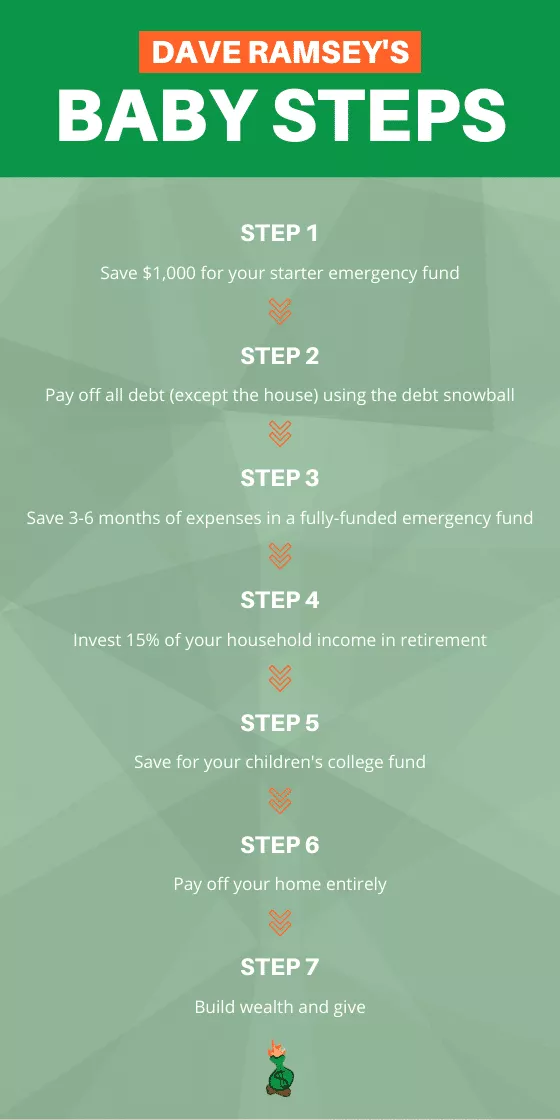
Step 1: Save $1,000 emergency fund
Because unexpected expenses are bound to happen, Ramsey recommends that you start off by stashing away $1,000 for your starter emergency fund. This is the first step because he tells everyone to cut up their credit cards and pay for everything with cash. He wants you to get this emergency fund saved up as quickly as possible, and to even eat rice and beans to get there.
There are many other ways that you can save $1000 quickly, such as:
- Tracking your money with budgeting apps like EveryDollar, which will help you create a zero-based budget. You can also pursue non-Ramsey options like YNAB or Empower.
- Decrease food costs by eating at home, meal prepping, shopping in bulk, and bringing your lunch to work.
- Eliminate unnecessary subscription costs like Netflix, Hulu, Amazon, the gym, and more. If you need help with this, set up a Trim account. It’ll go through your transactions to look for recurring charges that can be canceled. Billshark can also negotiate your phone, cable, and internet bill on your behalf.
- Find free things to do at home or in public for date night or as a family.
- Selling your stuff, whether by using a Craigslist alternative or Decluttr.
If you have an emergency during the following steps like if your car breaks down or the AC unit stops working, you’ll use this $1,000 to take care of it. And if it’s not enough, you can pause your debt payments to make sure that you avoid taking on any more debt. After that, you’ll use budgeting to build it back up again.
If you need somewhere to stash your emergency fund, try a money market account or high-yield savings account like CIT Bank.
Step 2: Pay off all debt (except the house) using the debt snowball
During step two, you’ll pay off all of your debt using the debt snowball method, except your mortgage.
To get started, you need to identify all of your debts: student loan, credit card debt, auto loan, and consumer debt. You’ll pay off the lowest balance first with any extra money and moving along until the highest and last debt is paid off (while also managing your minimum monthly payments).
Ignoring interest rates may cause you to pay more interest in the long run. However, Dave Ramsey prefers this method of debt payoff because it enables those who need the motivation to see immediate results. This is especially helpful for those who have a lot of debt and will be in this step for a significant amount of time. If you weren’t trying to pay down debt before, you’ll still pay much less than originally intended, though.
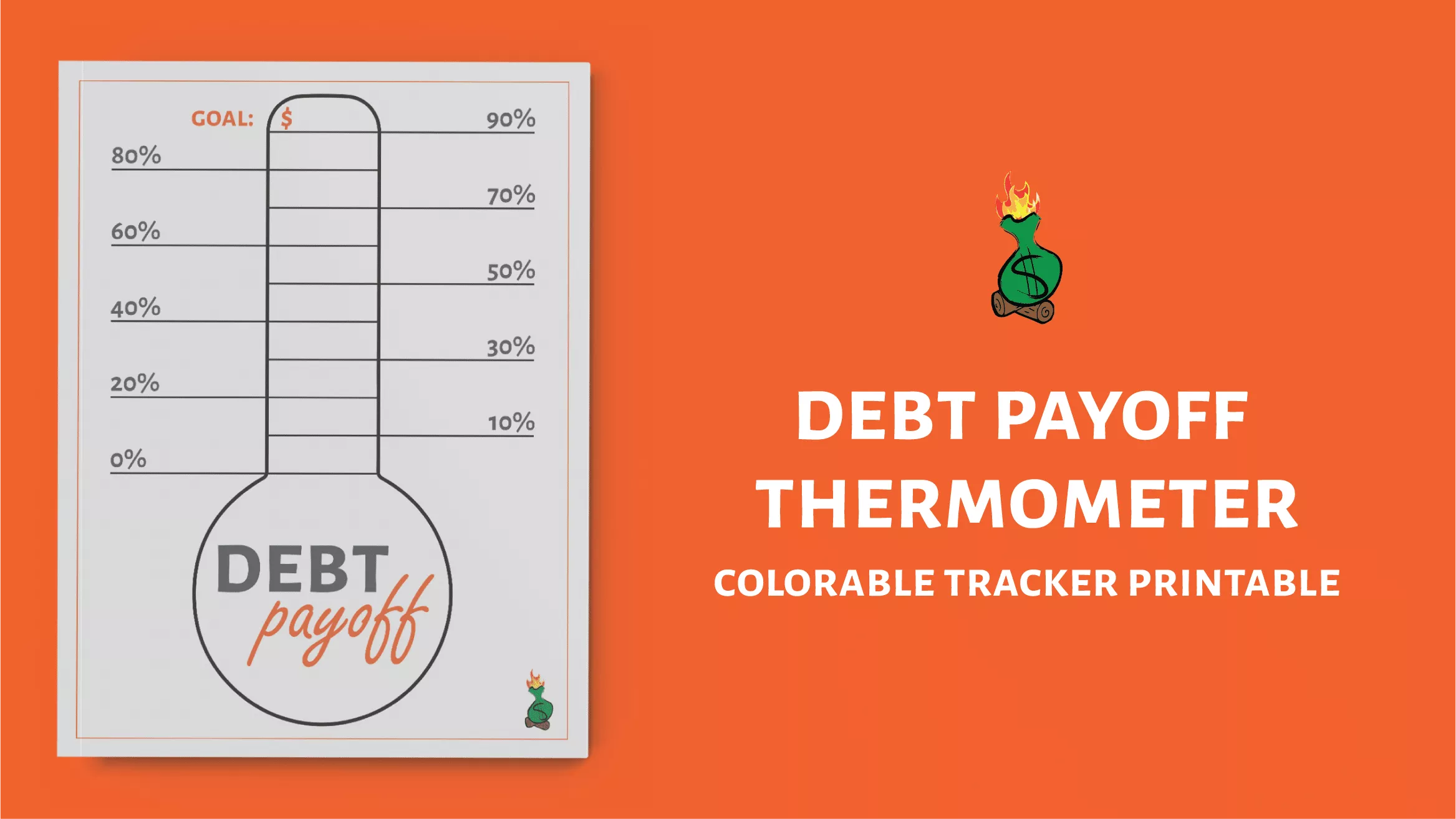
Step 3: Save 3-6 months of expenses in a fully-funded emergency fund
If your debt is gone, now is the time to move on to step three and fully fund your emergency fund. The Dave Ramsey Baby Steps state that you should save until you have three to six months’ worth of household expenses.
So, if the Smiths spend $3,000 per month on their living expenses, they’ll need to save between $9,000 to $18,000. This will be easier to calculate if you’ve been budgeting in an app or google sheets budget template. The more you save, the greater buffer you and your family will have against financial turmoil like job loss, home repairs, and health care bills.
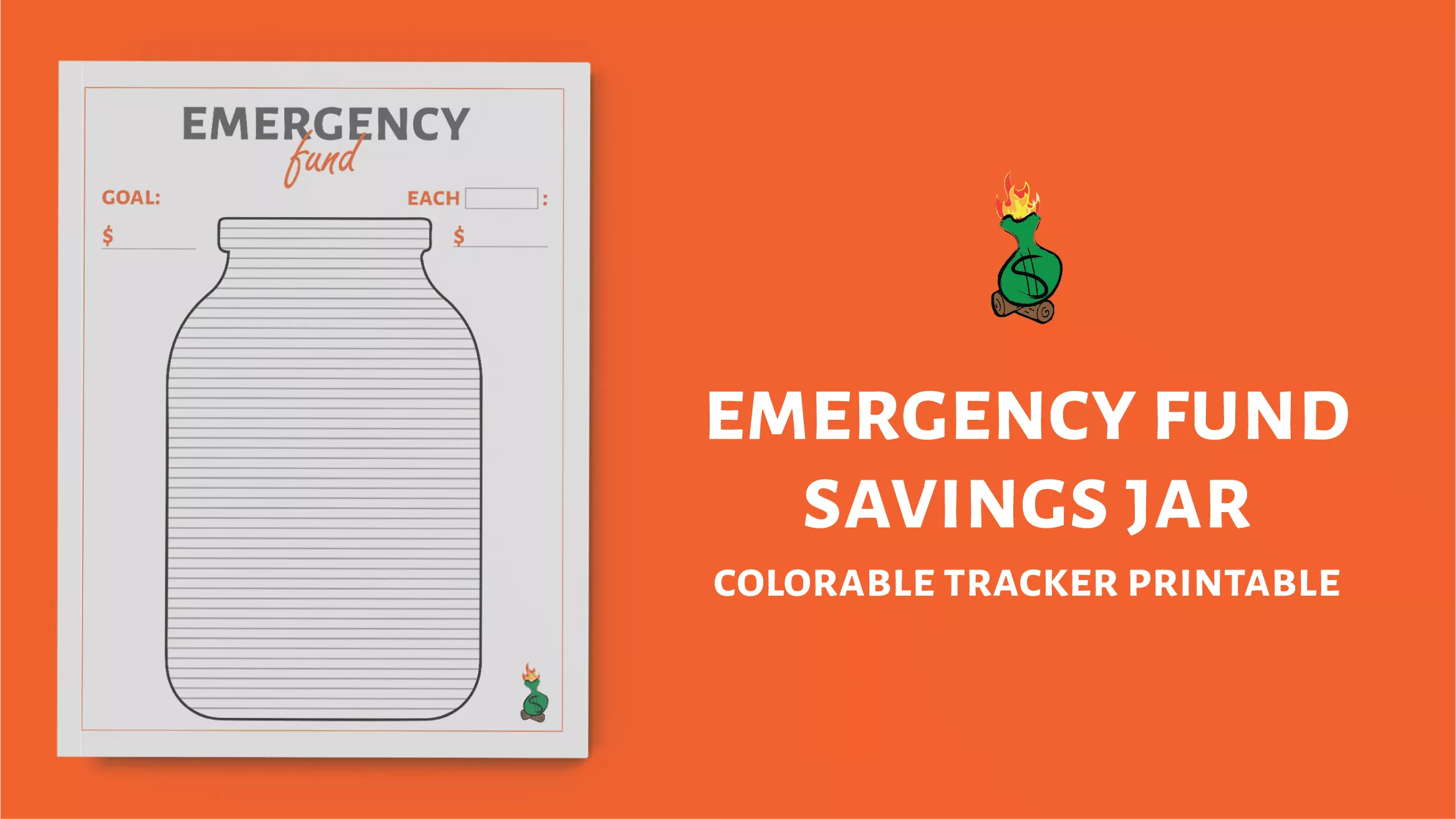
This may seem like a lot of money at first, but since you have freed up all the funds you were throwing at debt in step two, it could go quicker than you think.
You may ask, how long should Baby Step 3 take?
The answer to that question depends on several factors, such as how much money you have leftover in your budget each month and if you are able to take on additional side hustles to increase your shovel.
Here are some of our best resources that will help you make money fast.
Step 4: Invest 15% of your household income in retirement
Dave Ramsey encourages you to save for retirement starting in Baby Step Four and discourages any retirement savings before this point. He wants you to begin saving 15% of your household income in pretax retirement accounts, like your 401(k) or 403(b), while also taking advantage of your full employer match. He also recommends utilizing a Roth IRA for you (and a spouse, if applicable) if you meet the IRS requirements.
According to Ramsey’s investment philosophy, you should invest in mutual funds and avoid exchange-traded funds (ETFs), REITs, bonds, certificates of deposit (CDs), individual stocks, and annuities, among others.
If you want help tracking your investments as you dive into your retirement goals, Empower is the perfect free tool to partner with.
Step 5: Save for your children’s college funding
After you have your retirement savings in check, the next Baby Step involves saving for your child or kids’ college educations in a 529 college savings plan or education savings account (ESA). As you probably realize by now, Ramsey is a big proponent of being debt-free and wants your kids to pay for college in cash without student loans.
However, he acknowledges that this is a personal decision. If you want to skip over this step, that is acceptable. You also should only put funds away in step five if you have money left over after saving for your retirement each month.
Step 6: Pay off your home early
The Dave Ramsey Baby Steps recommend that you pay off your home mortgage early in step six. There is no such thing as good debt, only bad debt. This will give you an enormous amount of flexibility in your finances. You can tackle steps four through six at the same time, with the same ferocity that you did in steps one through three.
Can you imagine the freedom that will come with not owing anyone? Not to mention, the crazy savings that you’ll gain from your interest rate.
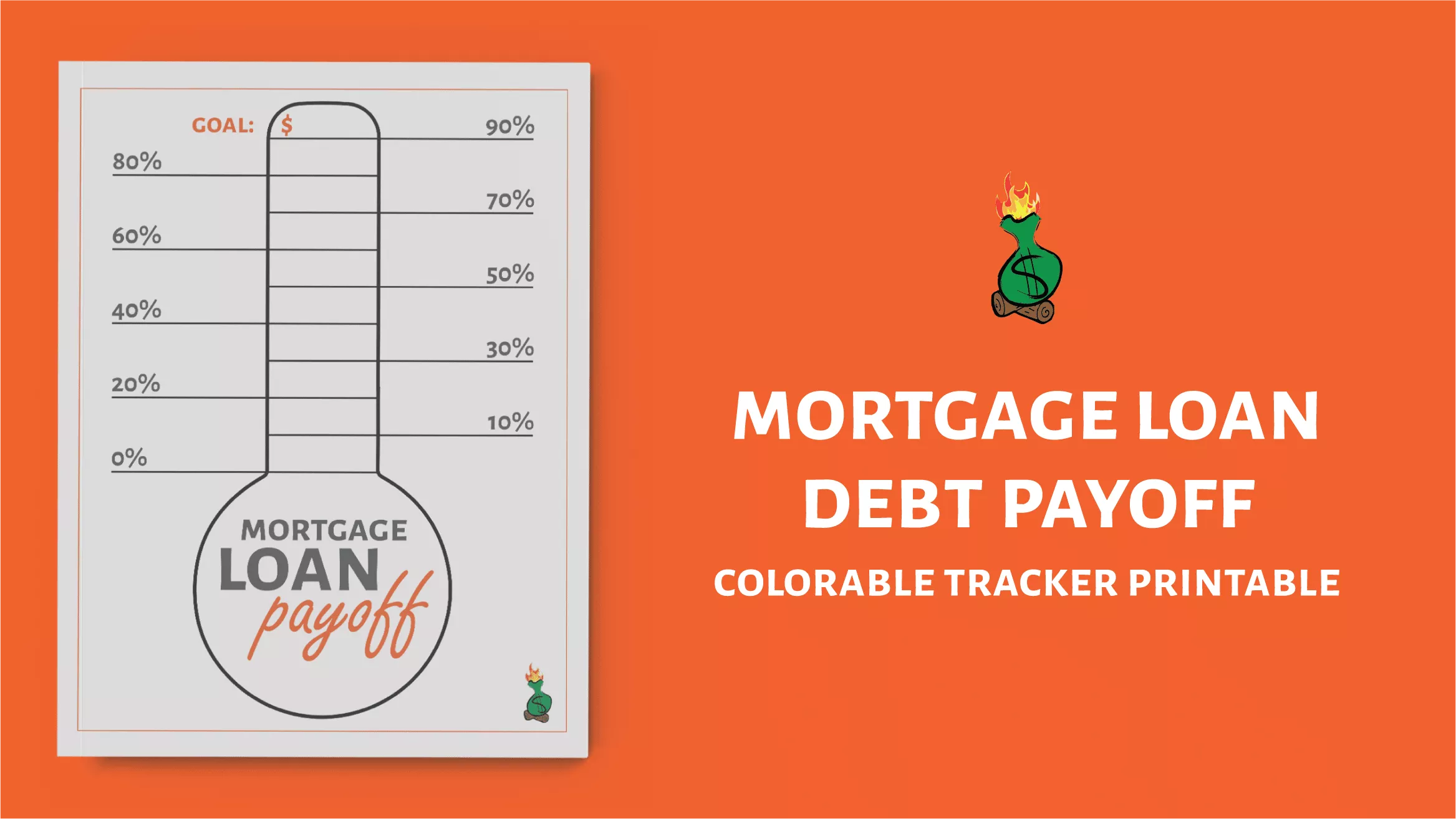
Step 7: Build wealth and give
If you’ve reached Baby Step 7, you have a lot to celebrate. You’ve paid off debt and saved a lot of money. It’s time to reap the rewards of all of your hard work and leave a legacy and inheritance for your family.
Now you can continue building wealth and start giving generously and often. In this phase, you have the freedom and flexibility to do so much more than you did before. You can travel, invest in real estate, and do the work that makes you happy. Keep reaching towards the life you want and the financial goals you need to get there.
Gain access to all of our free resources!
- eBooks
- Spreadsheets
- Printables
- Other great Freebies!
Pros and Cons of Dave Ramsey’s Baby Steps
The Dave Ramsey Baby Steps are a hot topic in personal finance. Some people are loyal fans while others feel that they are too strict for what is needed in current times. Either way, it’s up to you to decide what’s right for you.
Here are the pros and cons that you should be aware of.
Pros of the Baby Steps
- Emergency funds are essential. Dave Ramsey’s programs put an emphasis to start saving money and building emergency funds. This is important because only 41% of Americans would be able to cover a $1,000 emergency. It’s one of the most basic tools in financial preparation and staying out of debt.
- The steps motivate you to continue. Ramsey has formulated his teachings with human psychology in mind. His steps allow you to reach small wins that will motivate you to keep going, even when it gets exhausting and seems like you’ve been working on a step for a long time.
- Dave Ramsey’s Baby Steps are simple and easy to follow. Dave has helped millions of Americans get out of debt with his straightforward strategies. There are no decisions for you to make when working on the Baby Steps, which works on a basic level to help people who wouldn’t otherwise know what to do.
Cons of the Baby Steps
- No flexibility. Every person’s situation is unique, which can mean that changes might need to be made in how something is done. However, the 7 Baby Steps don’t allow for this flexibility. It’s a very black and white methodology. Keep in mind that if you are working on budgeting, paying off debt, saving, and investing, you’re already doing better than the majority of the population.
- The math doesn’t add up: Debt Snowball vs. Debt Avalanche. As we discussed before, the debt snowball method involves paying off your debt with the lowest balance first until you eventually get to your highest debt balance, ignoring interest rates. This math just doesn’t add up. Your high-interest debt will just keep growing and increasing the amount you owe. The debt avalanche method does the opposite and makes much more sense. You’ll pay off your debt with the highest interest rate first until you get to the lowest interest rate debt, ignoring the amount.
- Can’t save money from the start. In Dave’s Baby Steps, it’s not recommended that you begin saving for retirement until step four. This is honestly hard to justify given the power of compound interest and getting started as soon as possible. The earlier and longer you save, the greater chance you have at building wealth.
- Higher savings needed for early retirement. Let’s just say that saving 15% won’t cut it for those who want to retire early. You’ll often find the FIRE community saving upwards of 50-70% of their gross household income to help them beat the rat race much sooner than age 65.
- Credit card rewards. In the Baby Steps, it’s assumed that every person has a negative relationship with credit cards and cannot control their spending. In result, you’re told to cut up every credit card you own and to only use cash or debit. There is a missed opportunity cost here for those who use credit cards for the rewards.
Updating Dave Ramsey 7 Baby Steps
There are many ways that the Dave Ramsey Baby Steps can be updated to address the disadvantages mentioned above. Alternatively, you can use them for what they are…baby steps to reaching the next level.
Baby Steps Dave Ramsey Gets Wrong
- Baby Step One. Only having $1,000 as savings in the bank can actually be really scary. There are so many things that could go wrong between the time that you complete baby step one and three that cost more than that. Even worse, Dave often tells people on his radio show that if their emergency fund is greater than this amount, they should deplete it to pay off debt or become debt free. To update this step for real life, try accumulating more in your emergency fund right out of the gate. It’s perfectly acceptable to have a sizable chunk towards your fully funded emergency fund before starting to pay off debt.
- Baby Step Two. As mentioned under disadvantages of the Baby Steps, the debt snowball method doesn’t make a lot of sense. Depending on how much you owe, you could potentially pay thousands of extra dollars unnecessarily. Paying off debt should be more adaptable and there should be a choice in using the avalanche method instead. This is especially true for those who are unlikely to quit once they make a goal for themselves. As an example, why would you choose to pay off student loan debt with a low interest rate of 4.75% first in lieu of credit card debt that accumulating at a rate of 22%? The correct answer is that you shouldn’t.
- Baby Step Four. It’s important to save as soon as you can, so waiting until step four is not feasible. Take advantage of any employer matches that you have access to right away. It’s free money that you should not miss out on! Also, don’t be influenced by Dave Ramsey’s hate for the FIRE Movement. He has mocked those who want the freedom and flexibility that financial independence and early retirement offers. Feel free to save more than 15% of your income each month for retirement, we certainly do! If it’s your first time saving, however, challenge yourself to reach and exceed this savings goal.
- Credit Cards. Dave Ramsey has a no questions asked policy about credit cards. Cut them up! Some people have issues with credit card temptation. But, for those who don’t carry a balance, have a healthy relationship with them, and pay them off each month responsibly, this shouldn’t be a feasible option. Credit cards, like the Chase Sapphire Preferred, can offer a ton of money in rewards that can be used to travel hack, get free gifts, and more. In the modern world, it’s also difficult not to use a credit card for online purchases and reservations. Many vendors require them over a debit card.
How To Transfer Dave Ramsey’s Baby Steps to the FIRE Movement
The Dave Ramsey Baby Steps provide a basic financial foundation that helps people get control of their finances in a variety of aspects. They were actually the first things we worked on as a couple in our finances. But, we quickly realized that there were many ways that they could be optimized and improved upon. This lead us to even more research and we stumbled upon FIRE.
In many ways, the Baby Steps prepared us to take our finances to the next level. Without perfecting the basics, we wouldn’t have been able to comprehend the more complex topics of financial independence and early retirement. This is why we truly believe that you can transfer your Dave Ramsey knowledge to work towards FIRE.
If you no longer feel a connection to Dave Ramsey’s strategies, here are some ways that you can use what you have learned with the seven baby steps in financial independence.
1. Make the Transition
FIRE takes Dave Ramsey to a whole new level. If you’re ready to move on, you’ll need to understand how to get started. Take the basics of personal finance that you’ve studied, and read our free ebook as a precursor to learning how to do exactly that.
Gain access to all of our free resources!
- eBooks
- Spreadsheets
- Printables
- Other great Freebies!
2. Nail Down Your Budget
You’ve been focusing on understanding where every dollar goes. Now you can nail it down even further by enveloping yourself in frugal living. It’s not as bad as it sounds, though. You’ll learn how to direct your money towards what you value rather than trying to keep up with the Joneses. If you’re still working on paying off debt, building up an emergency fund, and building wealth, these are all goals you can still pursue when you move on from the Baby Steps.
3. Calculate Your Numbers
Dave Ramsey helps you recognize the importance of saving and paying off debt. Take that knowledge even further by calculating your FI number. The work you’ve been putting in with the Dave Ramsey Baby Steps will be the foundation to reaching your new goal of financial independence and early retirement. The discipline you’ve adopted will help you stay focused on the future.
4. Grasp More Complex Topics
When you started following Dave Ramsey, you probably wanted to change your financial life for the better: to stop living paycheck-to-paycheck and feeling the immense weight of debt on your shoulders. FIRE graduates you to a new understanding of what your goals are and what you want your life to look like.
There are more complex ideas and strategies in the FIRE movement compared to Dave Ramsey’s plan. From understanding your why, the paths to FIRE, investing, enjoying your journey, and more, check out our FIRE Guide for a comprehensive overview.
Looking to buy your dream home with your newfound wealth? If you need to create a payslip as proof of income, you can try this online check stub maker.
Dave Ramsey Baby Steps FAQs
Does Dave Ramsey’s Program and the Baby Steps Work?
Yes and no. The people who it has been effective for are also the same people who are willing to put in the effort to make the program work.
How long does Dave Ramsey’s Baby Steps Take?
This answer also depends on your situation. The more money you have stashed away at the start or the more extra money in your budget each month, the quicker you can get through the 7 Baby Steps of Dave Ramsey. It can take people anywhere from a few months to several years to make it to Baby Step Seven, depending on where they are in life.
What does Dave Ramsey say about renting?
Ramsey says that renting is not a waste of money since you’re paying for somewhere to live. He believes you should stick to renting when you’re paying off debt, your job requires you to move around, and you need time to make a plan. You should not rush into buying a house until you’re completely prepared for it. Additionally, your rent payment should not exceed 25% of your take-home pay.
Does Dave Ramsey recommend paying off your mortgage?
When applying for a mortgage, Dave Ramsey says that you should not sign up for a housing monthly payment (including property taxes and insurance) that is more than 25% of your take-home pay. Additionally, a 15-year, fixed-rate mortgage is the way to go. He recommends paying off your mortgage during Baby Step Six.
Use the Baby Steps as a Starting Point
As you can tell, we encourage everyone to pursue their own version of financial freedom. The FIRE movement and community are much more supportive of different approaches. But, it would be hard to appreciate where we are without acknowledging the help of the Dave Ramsey Baby Steps.
The famous finance expert has a stubborn idea of what you should do with your money, but in the end, he has helped millions of people improve their finances. There are many important financial skills that you can learn from him, but they will only take you so far. So, use them as a starting point and then move on.
If you’ve made significant progress on the Dave Ramsey Baby Steps and are ready to dive deeper, join our Financial Independence Retire Early (FIRE) for Beginners Facebook Group today!
Samantha Hawrylack is a personal finance expert and full-time entrepreneur with a passion for writing and SEO. She holds a Bachelor’s in Finance and Master’s in Business Administration and previously worked for Vanguard, where she held Series 7 and 63 licenses. Her work has been featured in publications like Grow, MSN, CNBC, Ladders, Rocket Mortgage, Quicken Loans, Clever Girl Finance, Credit Donkey, Crediful, Investing Answers, Well Kept Wallet, AllCards, Mama and Money, and Concreit, among others. She writes in personal finance, real estate, credit, entrepreneurship, credit card, student loan, mortgage, personal loan, insurance, debt management, business, productivity, and career niches.

